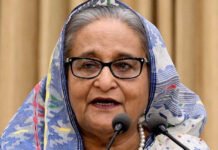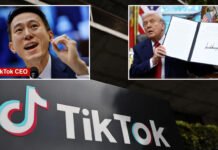Traders’ Dilemma : The recent announcement of the Lok Sabha elections 2024 has sent ripples of concern through the business community in New Delhi and across the nation. As the Election Commission unveiled the dates for this pivotal event, the implementation of the Model Code of Conduct swiftly followed suit, ushering in a period of heightened regulatory scrutiny and potential disruptions for traders and businesses alike.
The Dual Challenges Faced by Traders
The Confederation of All India Traders (CATE), representing the collective voice of businesses, has issued a poignant statement highlighting the delicate balance between democratic processes and economic stability. While acknowledging the necessity of upholding the sanctity of elections through the enforcement of the code of conduct, CATE underscores the critical need to safeguard the uninterrupted flow of commerce and trade.
Business as the Lifeblood of the Economy
At the heart of this concern lies the fundamental role of businesses as the lifeblood of the economy. For traders, the rhythm of commerce beats incessantly, transcending temporal boundaries and political cycles. With businesses operating round the clock, throughout the year, the imposition of the election code of conduct poses significant challenges to their operational continuity.
The Imperative of Sustaining Business Momentum
Central to the operation of businesses is the seamless interaction between urban markets and their rural counterparts. City traders play a pivotal role in supplying goods to villages, rural areas, and tribal regions, thereby fueling economic activity at the grassroots level. Any disruption to this intricate supply chain could have far-reaching consequences, jeopardizing livelihoods and economic stability.
Navigating the Wedding Season and Economic Realities
As the nation gears up for the impending wedding season, the demand for goods is poised to surge. Rural-urban migration during this period amplifies the need for businesses to remain adequately stocked and liquid, catering to the influx of consumers with ready cash. However, the imperative of curbing electoral malpractices must be balanced against the pragmatic necessity of sustaining economic momentum.
Finding Equilibrium: Striking a Balance
In this delicate balancing act, it is incumbent upon the Election Commission to heed the calls of the business community and institute measures that mitigate the adverse impact of the code of conduct on commercial activities. While ensuring the integrity of the electoral process remains paramount, proactive steps must be taken to shield businesses from undue disruptions, thereby fostering an environment conducive to both free and fair elections and robust economic growth.
Lok Sabha elections 2024 loom large on the horizon
As the Lok Sabha elections 2024 loom large on the horizon, the concerns voiced by traders underscore the intricate interplay between democratic governance and economic imperatives. Striking a delicate balance between these competing interests is essential to safeguarding the integrity of the electoral process while preserving the vibrancy of India’s economic landscape. In the crucible of democracy, let us forge a path forward that upholds both electoral integrity and economic resilience.















